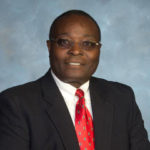By Rev. Anthony J. Headley
To say that the last few years have brought significant difficulties into the lives of pastoral leaders would represent the mother of all understatements. During these last few years, pastoral leaders experienced untold burdens placed on them by external events in the broader society and within the church. In early 2020, the world came face to face with the intense health implications, demands, and devastation brought about by COVID-19. Along with the significant loss of life came shutdowns, masking, social distancing, and other social restrictions that affected both church and society. In response to governmental mandates, churches closed for a time. After churches reopened, pastors continued to face various tensions. Many pastors found themselves facing dilemma after dilemma. Should they enforce wearing of masks in church? Should they allow singing and if so, how should they do sing? Or should they require no singing within church services? Should they even have live services? These were but a few of the puzzling questions and pressures pastors faced.
For pastors caught between these wrenching choices, there was no path to a win. Every possible position had its adherents and its opponents. As a result, any decision made immediately brought both strong approval from proponents and stinging rebuke (and sometimes worse) from opponents. Even reopening churches for worship brought its own set of problems.
During the last couple of years, I had the opportunity to speak to clergy groups in Kentucky, Indiana, Arkansas, Tennessee, and Oklahoma on pastoral issues related to the pandemic. Recurring themes included the devastating effects of the pandemic on church life and their own personal lives. While pastors affirmed the negative emotional effects of the pandemic in their own lives, at the same time, they spoke of the difficulties they encountered in trying to respond to the many issues the pandemic brought into the lives of their congregants. Many pastors found themselves ill-equipped to handle the demands placed on them from needy congregants. These congregational and personal issues cut across racial groups. Although the groups in Kentucky, Indiana, Arkansas, and Oklahoma were mostly comprised of white persons, the participants in Tennessee were mostly persons of color. However, all the groups endorsed the same issues. Additionally, they indicated that after their churches reopened, only around fifty percent of the congregation returned to live services. This problem led to a drastic reduction in church finances, creating yet another difficulty for churches and pastoral leaders.
In an article titled “Pastoral Ministry in Unsettled Times” that appeared in the Review of Religious Research in 2021, Erin Johnson spoke of how pastors had to redo ministry in three significant areas. First, pastors needed to rework worship to include formats both within the church as well as online. I also might add that pastors largely lacked the technological capabilities to provide worship in online formats, and many had to learn on the fly. Second, pastors wrestled with providing pastoral care to struggling parishioners with whom they could not interact face to face. According to Johnson, providing pastoral care was the area most disrupted in the pandemic. At the same time, since providing pastoral care was fundamentally tied to one’s pastoral identity, failing to provide it effectively caused many pastors to struggle with their pastoral identity, the third area in which pastors needed to rework. In turn, confusion about pastoral identity and doubts about their abilities to provide pastoral care fostered uncertainty about their call to pastoral ministry.
Political Polarization
As if this was not enough, the political polarization with the larger society reared its ugly head within congregations. Fierce proponents of political party talking points brought these differing positions into the church, sometimes creating deep and visible fissures between congregants. How was a pastor to navigate these troublesome waters while at the same time speaking biblical truth to a divided congregation? Even now, such disparate views and divisions continue to pose a great dilemma for pastoral leaders.
Disaffiliation and Questions Worth Considering
For those pastors within the United Methodist Church, one cannot ignore the current disaffiliations going on within the denomination. I recently read a report indicating that since 2021, some 2,000 congregations have disaffiliated from the United Methodist Church. Disaffiliation raises a number of pertinent issues and places significant pressures on pastors caught between those seeking to disaffiliate and those seeking to maintain historical connections to the United Methodist Church. Several key questions have the potential to create significant pressure and stress on clergy pastors and leaders, including:
- How does a pastor lead a church through the turbulent waters of disaffiliation?
- What does a pastor do when there is a visible and somewhat equal divide within his or her congregation between those who wish to remain United Methodist and those who wish to disaffiliate?
- How do pastors deal with the grief related to multiple areas of loss within themselves and within congregations when they choose to disaffiliate?
- How do they process and resolve issues around long-cherished memories associated with being part of a denomination?
- If a church disaffiliates and enters another denomination, how does the pastor, individual members, and the congregation as a whole address the many psychological transitional issues that such a move entails?
- How do receiving denominations help facilitate within their conferences and/or districts to open wide their boundaries to receive such entering churches?
- How do receiving denominations address the transitional issues within their own conferences and districts deriving from entering churches and the resulting reshaping that ultimately will occur?
These are all pertinent questions. However, although I grant that I am not privy to the various arrangements and plans made when churches disaffiliate and enter new denominations, I suspect these and other related questions are not adequately being addressed. I hope I am wrong. Furthermore, I am persuaded these issues require intentional transitional processes to help pastors and congregations grieve and address the accrued losses while helping facilitate entry into new realities. Without them, pastors will have added burdens heaped on the many other pressures they already face.
The Toll on Church Leaders
Given these many demands and pressures, it is no surprise that pastors’ mental health has suffered immensely during these last few years. A 2019 survey of United Methodists pastors in North Carolina shed some light on the presence of anxiety and depression among pastors. The study reported elevated depression rates associated with feeling socially isolated and having a sense of guilt about not doing enough work. In the same survey, doubts about one’s call to ministry was a top predictor of elevated anxiety rates. Granted, this survey was done prior to the onset of the pandemic and was restricted to North Carolina United Methodist ministers. Nevertheless, I have heard these same themes raised in settings where I interacted with pastors from varied denominations. I also have seen such issues raised in other reports. For example, from conversations with 1,759 pastors done in March through May of 2020, Barna research highlighted a number of mental health issues. These included struggling with emotional and relational well-being and feeling overwhelmed, tired, exhausted, and sad, to name a few.
So, how do pastors function in the midst of such pressing and crippling demands that take a toll on their lives? I will offer a few coping strategies in my next article, “Coping with the Difficulties Pastors Face: Part Two.”

Rev. Anthony J. Headley, M.Div., Ph.D., is emeritus professor of counseling at Asbury Theological Seminary where he taught counseling and pastoral care for 31 years. He is an ordained Free Methodist Elder and a licensed psychologist in Kentucky. In retirement, he conducts a ministry to ministers through Ahead Ministries. Find out more at anthonyjheadley.com.

